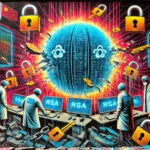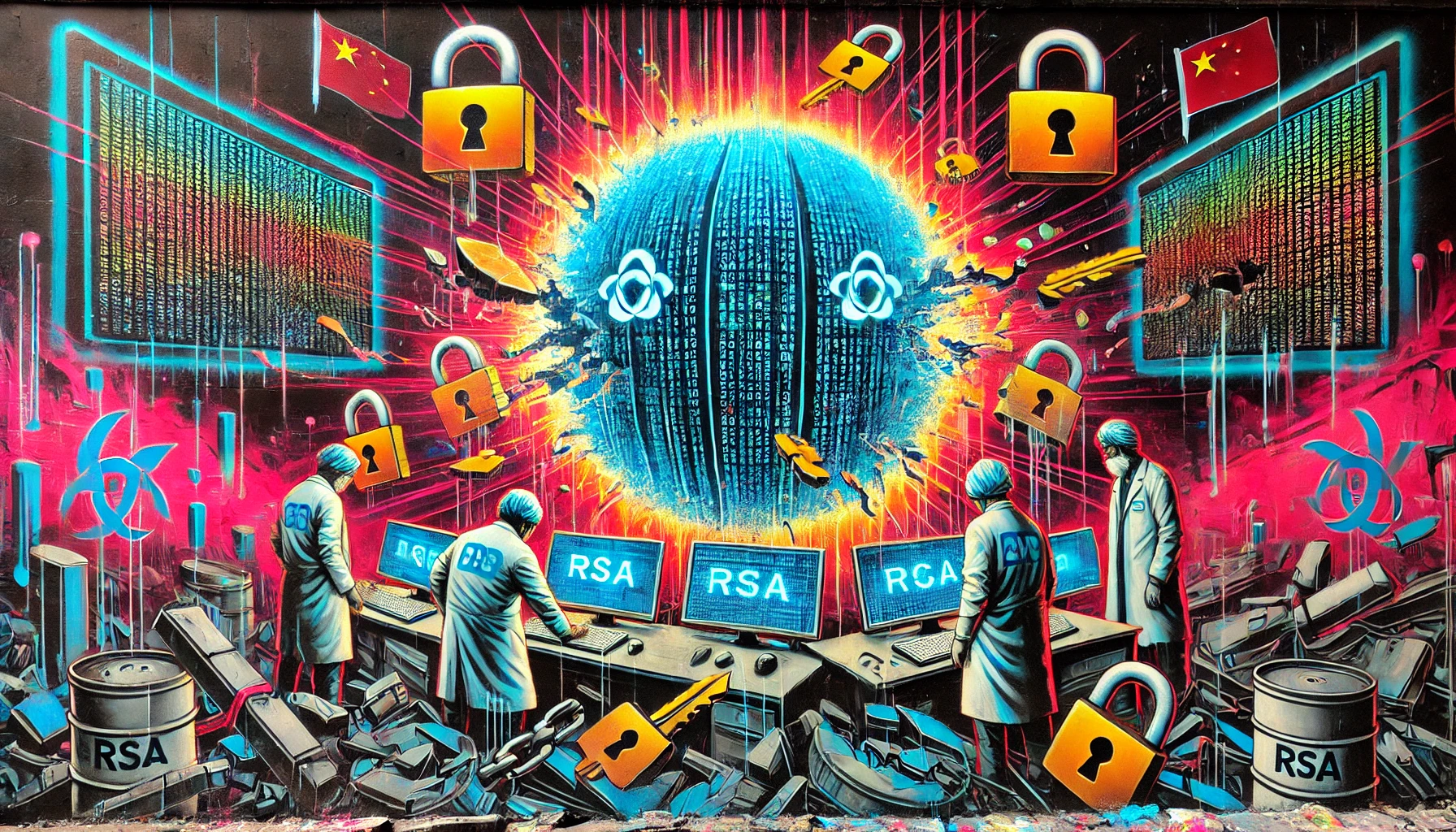Chinese researchers have successfully cracked RSA encryption using a quantum computer, marking a significant threat to current cryptographic systems, including those used for secure web browsing, financial transactions, and encrypted messaging apps. This development accelerates the timeline for quantum computers to break widely used encryption methods, potentially compromising the security of sensitive data and impacting areas like cryptocurrency and private communications. The breakthrough highlights the urgent need for quantum-safe cryptography, as governments and organizations must quickly adopt post-quantum cryptographic solutions to protect against future quantum attacks.
What Ramifications Does This Have for Cryptorrency & Encrypted Messaging
Chinese researchers recently claimed to have cracked RSA encryption using a quantum computer, marking a significant development in cybersecurity. The team, led by Wang Chao from Shanghai University, used a D-Wave quantum annealing system to factor a 22-bit RSA integer, demonstrating that quantum technology can now pose a real threat to classical encryption methods such as RSA and AES (Advanced Encryption Standard). The implications of this breakthrough are profound, as RSA encryption underpins much of the internet’s secure communications, from web browsing and email encryption to financial transactions. If further refined, quantum computers could easily break these encryption methods, jeopardizing the security of sensitive data globally.
For cybersecurity, this development accelerates the timeline for when quantum computers could render current cryptographic systems obsolete. Until now, experts have estimated that such threats were still decades away. However, this research suggests that the transition to quantum-resistant encryption methods may need to happen much sooner than anticipated. Governments, corporations, and individuals who rely on RSA and AES for data protection must begin rethinking their encryption strategies, as encrypted data collected today could be vulnerable to decryption in the future once quantum computers become more powerful, and more widespread.
The impact on cryptocurrency could be significant. Many cryptocurrencies, including Bitcoin and Ethereum, rely on public-key cryptography similar to RSA to secure transactions and ensure the integrity of the blockchain. If quantum computers can crack these encryption methods, the entire security model underpinning these networks could be compromised. This could lead to scenarios where malicious actors could reverse transactions or even control large portions of the blockchain, leading to a potential collapse in trust and value within the ecosystem. Developers and projects will need to prioritize the integration of post-quantum cryptographic methods to safeguard these networks.
Encrypted messaging apps such as Telegram and Signal, which rely heavily on RSA and AES to protect user communications, are also at risk. If quantum computers can break these encryption algorithms, users’ private messages could be decrypted and exposed, compromising the privacy and security of millions. This situation could potentially lead to the breakdown of trust in privacy-focused services, prompting companies to urgently implement quantum-safe encryption protocols to protect user data.
While the research is still in its early stages, and the exact methods used by the Chinese team remain elusive, it serves as a wake-up call for the cybersecurity community. Quantum computing is no longer a distant threat; it is quickly becoming a reality. Organizations must accelerate their efforts to adopt quantum-resistant encryption algorithms, such as those currently being developed and tested by the National Institute of Standards and Technology (NIST) and other entities. Failure to do so could leave vast amounts of sensitive data vulnerable to future quantum attacks.
Quantum-safe cryptography, also known as post-quantum cryptography (PQC), is being developed as a solution to this emerging threat. These algorithms are designed to withstand attacks from quantum computers, and while they are still in the testing and implementation phase, their deployment is becoming increasingly urgent. Governments, financial institutions, and tech companies are already investing heavily in PQC research, recognizing that a transition to quantum-resistant systems is inevitable.
The Chinese researchers’ breakthrough in cracking RSA encryption using quantum computers shows the urgent need to prepare for a post-quantum world. While this achievement demonstrates the potential of quantum computing, it also highlights the vulnerabilities of current cryptographic methods. The cybersecurity landscape is poised for a major transformation, and the race is on to develop and implement quantum-safe solutions before the threat becomes unmanageable.















